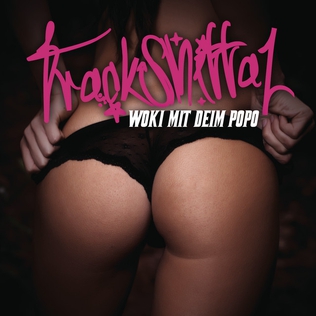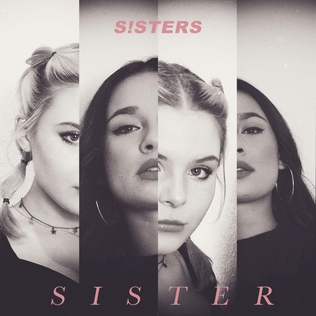The United Kingdom participated in the Eurovision Song Contest 2003 with the song "Cry Baby" written by Martin Isherwood. The song was performed by the duo Jemini. The British entry for the 2003 contest in Riga, Latvia was selected via the national final A Song for Europe 2003, organised by the British broadcaster BBC. Eight acts competed in the national final which consisted of a semi-final and a final, during which the winner was selected entirely through a regional televote.

The Netherlands has participated in the Eurovision Song Contest 62 times since making its debut as one of the seven countries at the first contest in 1956. The country has missed only four contests, twice because the dates coincided with Remembrance of the Dead and twice because of being relegated due to poor results the previous year. The Netherlands hosted the contest in Hilversum (1958), Amsterdam (1970), twice in The Hague and Rotterdam.

Belgium has participated in the Eurovision Song Contest 63 times since making its debut as one of seven countries at the first contest in 1956. The only countries with more appearances are Germany (65), France (64) and the United Kingdom (64). Belgium have been absent only three times in total, in 1994, 1997 and 2001, due to low scores in the previous contests that relegated them from the contest. Belgium has won the contest once, in 1986.

Germany has officially participated in every Eurovision Song Contest since its beginning in 1956, except in 1996 when its entry did not qualify past the audio-only pre‐selection round, and consequently was not seen in the broadcast final and does not count as one of Germany's 65 appearances. No other country has been represented as many times. Along with France, Italy, Spain and the United Kingdom, Germany is one of the "Big Five" countries that are automatically prequalified for the final, due to being the largest financial contributors to the European Broadcasting Union (EBU). The final is broadcast in Germany on ARD's flagship channel, Das Erste.

Switzerland has participated in the Eurovision Song Contest 62 times since making its debut at the first contest in 1956, missing only four contests, in 1995, 1999, 2001 and 2003. Switzerland hosted the first contest in 1956 in Lugano, and won it. Switzerland won the contest again in 1988, with the 1989 contest being held in Lausanne.

Ireland has participated in the Eurovision Song Contest 55 times since making its debut at the 1965 contest in Naples, missing only two contests since then. The contest final is broadcast in Ireland on RTÉ One. Ireland has a record total of seven wins, and is the only country to have won three times consecutively.

Finland has participated in the Eurovision Song Contest 55 times since its debut in 1961. Finland won the contest for the first – and to date only – time in 2006 with Lordi's "Hard Rock Hallelujah". The country's best result before then was achieved by Marion Rung with the song "Tom Tom Tom" in 1973, which placed sixth.

Norway has participated in the Eurovision Song Contest 60 times since making its debut in 1960 and has only been absent twice since then. In 1970, the country boycotted the contest over disagreements about the voting structure, and in 2002, they were relegated. The contest is broadcast in Norway by NRK, which also broadcasts Norway's national selection competition, Melodi Grand Prix.

Israel has participated in the Eurovision Song Contest 44 times since making its debut in 1973. Israel was able to enter the contest as the Israel Broadcasting Authority (IBA) was an active member of the European Broadcasting Union (EBU), which was responsible for the event. The IBA was succeeded as the broadcaster in charge of the Israeli entry by the Israeli Public Broadcasting Corporation (IPBC/KAN) in 2018. Israel has won the contest four times, and has hosted the contest in Jerusalem twice in 1979 and 1999. Israel hosted the contest for the third time in Tel Aviv in 2019.

Denmark has participated in the Eurovision Song Contest 50 times, making its first appearance in 1957. Having competed in ten consecutive contests until 1966, Denmark was absent for eleven consecutive contests from 1967 to 1977. Since 1978, it has been absent from only four contests. Denmark has won the contest three times: in 1963, 2000 and 2013. The Danish national selection for the contest is the Dansk Melodi Grand Prix.
Denmark took part in the Eurovision Song Contest for the first time at the Eurovision Song Contest 1957, held in Frankfurt, Germany. The Danish entry was chosen during a national final called Dansk Melodi Grand Prix.
Re-Union were a short-lived Dutch-Italian musical duo, set up in late 2003 in order to take part in the Dutch Eurovision Song Contest selection in 2004. The duo were Paul de Corte and Italian-born Fabrizio Pennisi.
Iceland participated in the Eurovision Song Contest 2001 with the song "Angel" written by Einar Bárðarson and Magnús Þór Sigmundsson. The song was performed by the duo Two Tricky. The Icelandic entry for the 2001 contest in Copenhagen, Denmark was selected through the national final Söngvakeppni Sjónvarpsins 2001, organised by the Icelandic broadcaster Ríkisútvarpið (RÚV). Eight songs competed in the selection which was held on 17 February 2001. "Birta" performed by Kristján Gíslason and Gunnar Ólason emerged as the winner exclusively through public televoting. The song was later translated from Icelandic to English for the Eurovision Song Contest and was titled "Angel", while the duo was renamed as Two Tricky.

"Woki mit deim Popo" is a 2012 single by former Austrian rap duo Trackshittaz. The song represented Austria at the Eurovision Song Contest 2012, after winning Österreich rockt den Song Contest, Austria's national final. The song would then proceed to fail to qualify, only scoring 8 points, securing a last-place finish in 18th.

"Sister" is a 2019 single by German duo Sisters. The song represented Germany in the Eurovision Song Contest 2019 in Tel Aviv, Israel after winning Unser Lied für Israel, Germany's national final. In the final, the song would earn a 25th place finish, earning 24 points, all coming from the jury vote.
Moldova originally planned to participate in the Eurovision Song Contest 2020 with the song "Prison" written by Dimitris Kontopoulos, Philipp Kirkorov and Sharon Vaughn. The song was performed by Natalia Gordienko. Songwriter Philipp Kirkorov represented Russia in the Eurovision Song Contest 1995 with the song "Kolybelnaya dlya vulkana" where he placed seventeenth, while Natalia Gordienko had previously represented Moldova in the Eurovision Song Contest in 2006 together with Arsenium and Connect-R, placing twentieth with the song "Loca". The Moldovan broadcaster TeleRadio-Moldova (TRM) organised the national final Finala națională 2020 in order to select the Moldovan entry for the 2020 contest in Rotterdam, Netherlands. 34 entries competed to represent Moldova in Rotterdam, with 20 being shortlisted to participate in the televised national final which took place on 29 February 2020 after auditioning in front of a jury panel. "Prison" performed by Natalia Gordienko emerged as the winner after gaining the most points following the combination of votes from a jury panel and a public televote.
Moldova participated in the Eurovision Song Contest 2021 with the song "Sugar" written by Dimitris Kontopoulos, Philipp Kirkorov, Mikhail Gutseriyev and Sharon Vaughn. The song was performed by Natalia Gordienko, who was internally selected in January 2021 by the Moldovan broadcaster TeleRadio-Moldova (TRM) to represent the nation at the 2021 contest in Rotterdam, Netherlands. Songwriter Philipp Kirkorov represented Russia in the Eurovision Song Contest 1995 with the song "Kolybelnaya dlya vulkana" where he placed seventeenth, while Natalia Gordienko had previously represented Moldova in the Eurovision Song Contest in 2006 together with Arsenium and Connect-R, placing twentieth with the song "Loca", and was due to compete in the 2020 contest with "Prison". The Moldovan song, "Sugar", was presented to the public on 4 March 2021.
Norway participated in the Eurovision Song Contest 2022 in Turin, Italy with "Give That Wolf a Banana" performed by Subwoolfer. The Norwegian broadcaster Norsk rikskringkasting (NRK) organised the national final Melodi Grand Prix2022 in order to select the Norwegian entry for the 2022 contest. 21 entries were selected to compete in the national final, which consists of seven shows: four semi-finals, two Last chance round shows and a final. Ten entries ultimately qualified to compete in the final that took place on 19 February 2022 and the winner was determined over two rounds of voting.
Austria participated in the Eurovision Song Contest 2022 in Turin, Italy, with the song "Halo" written by Anders Nilsen, Gabriele Ponte, Luca Michlmayr, Rasmus Flyckt and Sophie Alexandra Tweed-Simmons. The song was performed by Lumix, which is the artistic name of DJ and producer Luca Michlmayr, featuring Pia Maria. On 8 February 2022, the Austrian broadcaster Österreichischer Rundfunk (ORF) announced that they had internally selected Lumix and Pia Maria to compete at the 2022 contest, while "Halo" was presented to the public on 11 March 2022.

"Halo" is a song by Austrian DJ Lumix and singer Pia Maria. The song represented Austria in the Eurovision Song Contest 2022 in Turin, Italy after being selected by ORF, Austria's broadcaster for the Eurovision Song Contest. The song peaked at number six in Austria.











